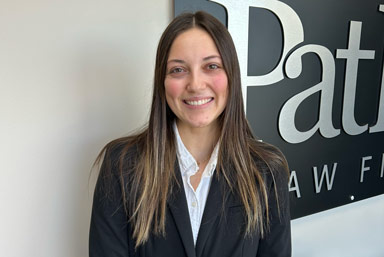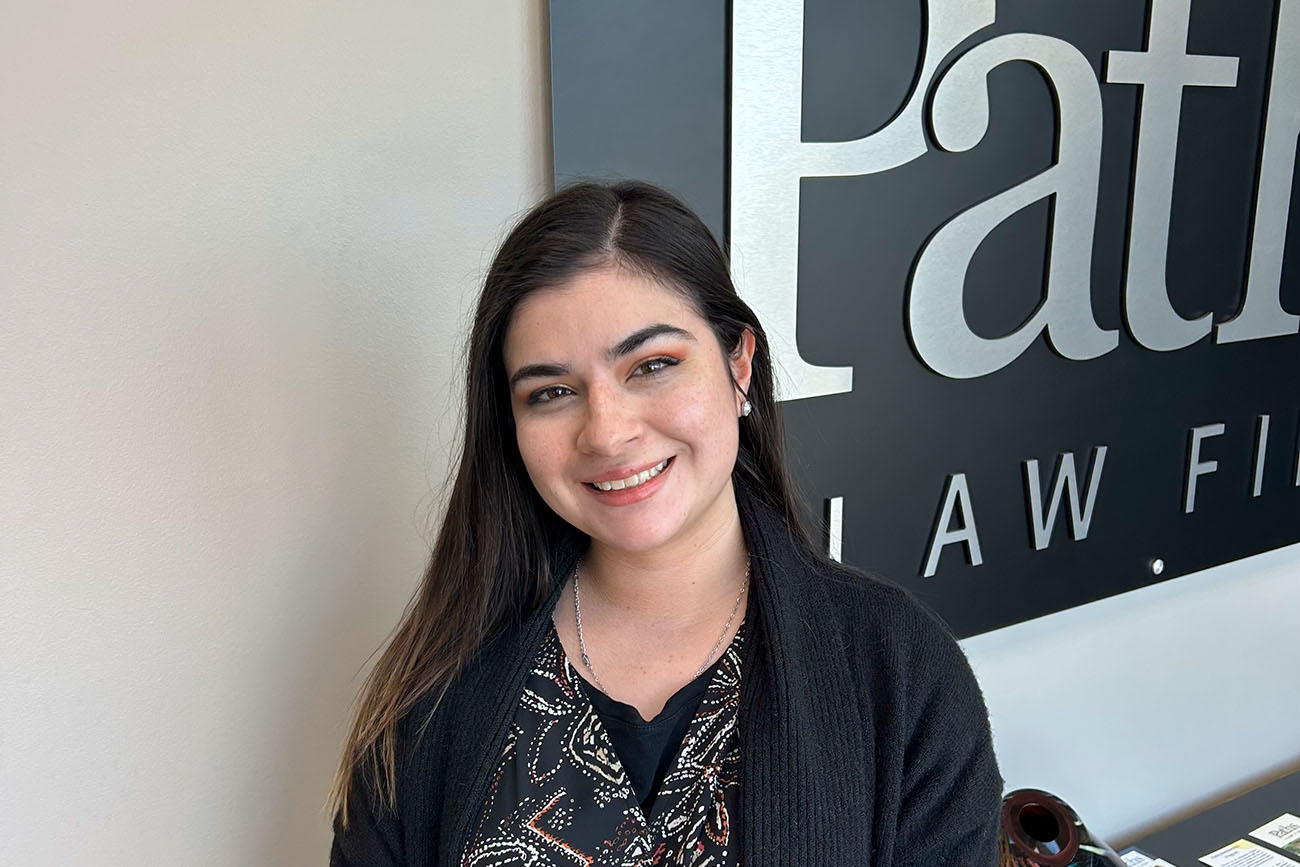Wondering if you should worry about beginning your estate plan?
As unwanted or disturbing as this fact may be, death is inevitable. We’re all eventually going to die and it’s better to make peace with it. But what makes this fact even more stressful is when death comes unannounced. It often doesn’t give people a chance to say goodbye to their loved ones, let alone explain to them what to do with their possessions.

*This blog is for educational purposes only and should not be considered legal advice. The use of the Paths Law Firm website does not constitute a client-lawyer relationship.
This is where estate planning comes in!
Your estate refers to everything you own. No matter how small or grand our estate may be, there’s one commonality: we have to leave everything behind. Hence, people tend to have a certain plan in mind when it comes to their estate to ensure its protection and proper distribution after their death. In this article, you’ll learn the basics of what you should first know about estates and estate planning, and the importance of hiring a qualified elder law attorney.
So, let’s dive right in!
What is an Estate?
Simply put, an estate refers to all the money, belongings, and investments you own, including your home, vehicle, furniture, bank accounts, antiques, and family heirlooms. It also includes any outstanding debts. A comprehensive estate plan will sorts it out, making clear, who’s in charge, and who gets what after you die.
In case you don’t have a plan and your estate matters aren’t specified, you may leave your family and loved ones fighting over your possessions or worse, your hard-earned valuables may go to the state or even skip to unintended heirs, all instead of your loved ones.
What is an Estate Plan and Why is it so Important?
An estate plan is meant to protect your possessions and family after you die or become incapacitated. It preserves important decisions regarding your health care and property disposition.
It is important for everyone to have an estate plan in place regardless of their age. Here’s why:
- It establishes who would receive your possessions after your death
- Appoints an executor to handle your estate matters after your death
- Enables you to avoid the dreaded probate process
- Includes the name of guardians for the care of yourself or minor children
- Lays a foundation for medical and financial decisions if you’re incapacitated or incompetent
- Minimizes stress for your family and loved ones during your incapacity and after your death
Beginning your estate plan is a crucial step in your life and so, it’s best to hand over the task to an expert. An elder law attorney is the best way to create a great estate plan to most likely match your specific needs, desires, and requirements.
Beginning Your Estate Plan: What You Need to Do
Beginning your estate plan may feel overwhelming, but think of it this way: after you die, it will work in your family’s favor as well as protect your belongings as per your wishes. You may think of it as an ‘end of life plan’.
What an Estate Plan Includes
Typically, a full estate plan features a strategic plan for fulfilling your wishes in case you become incapacitated or are unable to act for yourself along with determining what will happen to your possessions, debts, minor children, and pets after your death.
It most likely should include:
- Powers of attorney
- A living will, also known as a health care directive
- A Last Will and Testament
- Trust
- Beneficiary designations on insurance or retirement accounts
- Transfer on death deeds or accounts
3 Key Components of an Estate Plan
Generally, estate planning for seniors consists of three main components.

1) Powers of Attorney
A power of attorney is a critical written document in which seniors can empower another individual to act on their behalf in situations that may or may not involve incapacity. Please note, these “powers” can’t be granted to another for the execution or revocation of a Last Will and Testament or living will.
Durable Power of Attorney:
This is the most recommended type of power of attorney for estate planning purposes and usually the most beneficial. The person signing the power of attorney, known as the “principal,” may grant the powers to begin immediately or for them to begin upon a certain event. Should the powers begin upon an event, this is sometimes referred to as a “Springing Power of Attorney, i.e. it “springs” into effect upon the described event. The most common event described in such powers of attorney is the requirement that a physician (or two) giving their opinion that the principal is incapacitated.
If properly drafted, it is “durable” because the powers don’t terminate in the event the principal becomes disabled or incapacitated. Powers of Attorney, and the authority granted in them, terminate immediately when revoked by the principal and upon the principal’s death. After their death, the family needs to look to property titles, beneficiary designations, trusts and Wills for direction.
General Power of Attorney:
A principal may delegate to the trusted person (also referred to as an Attorney-in-Fact) in a power of attorney with general powers to act in a fiduciary capacity on the principal’s behalf with respect to all lawful subjects and purposes or with respect to one or more express subjects or purposes.
It is important to seek counsel regarding powers of attorney as there is no “one size fits all” formula. For example, whether or not a power of attorney “grants general powers for all subjects and purposes,” there are twelve actions that must be expressly enumerated and authorized in the power of attorney for the Attorney-in-Fact to exercise them, and several are frequently needed in the elder law field.
Health Care Power of Attorney:
There are legal formalities surrounding a power of attorney allowing a principal to designate another person to make medical decisions for the principal when he or she cannot make such decisions.

2) Death Planning
Last Wills and Testaments (often referred to simply as a “Will”) fall into the category of death planning. Trusts are often primarily used for this as well and are also helpful to have in case of incapacity. Properly executing these documents better ensures the fulfillment of your wishes regarding the division and distribution of assets after your death. It’s in these estate planning documents that you can explain in detail how you want your possessions to be distributed and who you want to inherit them. The more thorough, the better. A primary difference between a Will and a trust is that a Will’s directions only apply to assets going through the probate process.
Probate:
You must note the following points regarding probate:
- This process of transferring title to assets is required for all assets that don’t qualify under “Avoiding Probate.”
- It’s our experience, the majority of estates processing through probate requires about 1 year to complete and fees & costs are about 4% of the probate assets’ value. This is not as horrible as most people believe it to be.
- A Last Will & Testament only applies to assets that are being transferred through the probate process, i.e. if the transfer of title to a certain item falls under the “Avoiding Probate,” then whatever the Will states, in general, or specifically to that item, has no actual effect on the transfer.
How to Avoid Probate:
If you want to avoid probate in order to transfer your property as you wish upon your death, you have three options:
Joint Ownership:
Joint ownership means two or more people hold or own title to a property. The title of the property dictates ownership. Basically, the last owner living owns all interest in that property. This form of ownership for estate planning is not often recommended unless it happens between long-time married spouses or in a very limited way is desired for protecting assets from creditors.
Once joint ownership is established in certain assets, the consent of the joint owner may be required to make any changes. Also, once a senior adds another owner to an asset, it likely exposes the asset to the potential problems of the new joint owner, i.e. their death, their incapacity, their creditors, a divorce, etc. The greatest reason for not jointly titling assets is that the senior doesn’t need to in order to effectively and efficiently accomplish their objective.
Beneficiary Designations:
Beneficiary designations are quick and simple to accomplish for any asset in Missouri (cars, real estate, bank accounts, life insurance, etc.). However, there is little to no flexibility for contingencies by using beneficiary designations.
This is usually a poor choice for transferring real estate, in particular, for the following reasons:
- Not only do all the beneficiaries receiving an interest in the property need to agree when it comes to selling it, but title companies will also require the beneficiaries’ spouses to agree
- If a beneficiary is incapacitated (due to stroke, car accident, etc.) at the time of a later transfer or sale, the probate court is likely to be required to appoint a guardian regarding that beneficiary’s share
- There is no way to determine who will be responsible for utilities, cleaning, and all that precedes selling, or how they will be reimbursed for their expenses
Trusts:
These trusts are commonly referred to as “Living Trusts.” There are many types of trusts and the titles given them depend on the overall objective when utilizing such. A “Living Trust” is a standard estate planning tool wherein the client maintains control, being able to change or terminate it anytime, while they are alive and have the capacity.
A Living Trust is the preferred method of estate planning in most cases for the following reasons:
- Provisions/alternatives/contingencies can be made depending on the order of deaths of the senior or others to be included in their estate plan
- Provisions/alternatives/contingencies can be made in case of the senior’s or other person’s incapacity
- Provisions/alternatives/contingencies can be made to protect assets passing to beneficiaries, unlike other methods of avoiding probate
A Living Trust should hold title all your assets. IRAs cannot be owned by the trust, but the beneficiary of the IRA can be the trust and is recommended if properly drafted to hold retirement assets. Instead of simply leaving the property to family or friends, you can title it to a trust to ensure that your wishes will be fulfilled, won’t be dependent on another persons death or incapacity, and provides more privacy from public scrutiny.
What’s most important is that you should make sure a trust meets your objectives. An expert elder law attorney may help you find the best type of trust that suits your needs.
3) Asset Protection
It’s common for seniors to be concerned about nursing home costs, getting sued, being targeted by a scammer, or even an unscrupulous relative. You can use advanced estate planning methods, such as general liability (umbrella) insurance policies or long-term care insurance. This is a good idea to consider for you, your partner, your children, or other beneficiaries to protect your assets as a part of your estate plan. There are other types of trusts and estate planning tools good for this advanced planning. A professional elder law attorney may also discuss various trust options with you to help you protect against these fears.
Click Here for more on- How to Talk to Aging Loved Ones
The Bottom Line
You may be in good health now, but there’s no guarantee of the future. You may become mentally incapable of making decisions anytime, so there’s no time like the present to put your estate plan in place. It’s crucial to have a great estate plan in place to make sure your possessions and family members are protected. Unfortunately, many seniors think creating an estate plan is a complicated and stressful process, but we’re here to simplify the process and get it done effectively and efficiently.
It doesn’t have to be this way! By understanding how an estate plan works and hiring an expert elder law attorney can make the process smooth and pleasant.
Click the logo to contact us today!




































